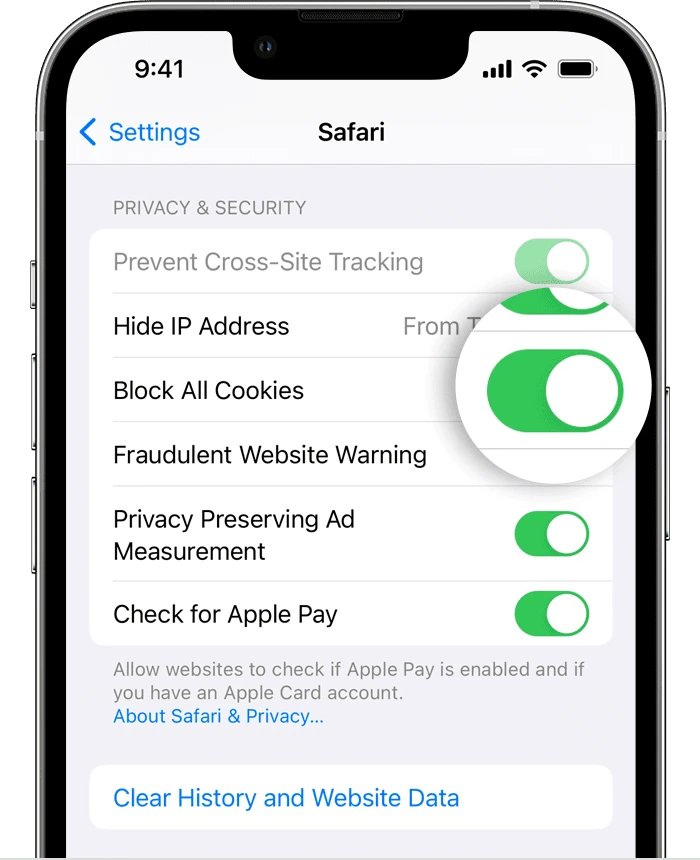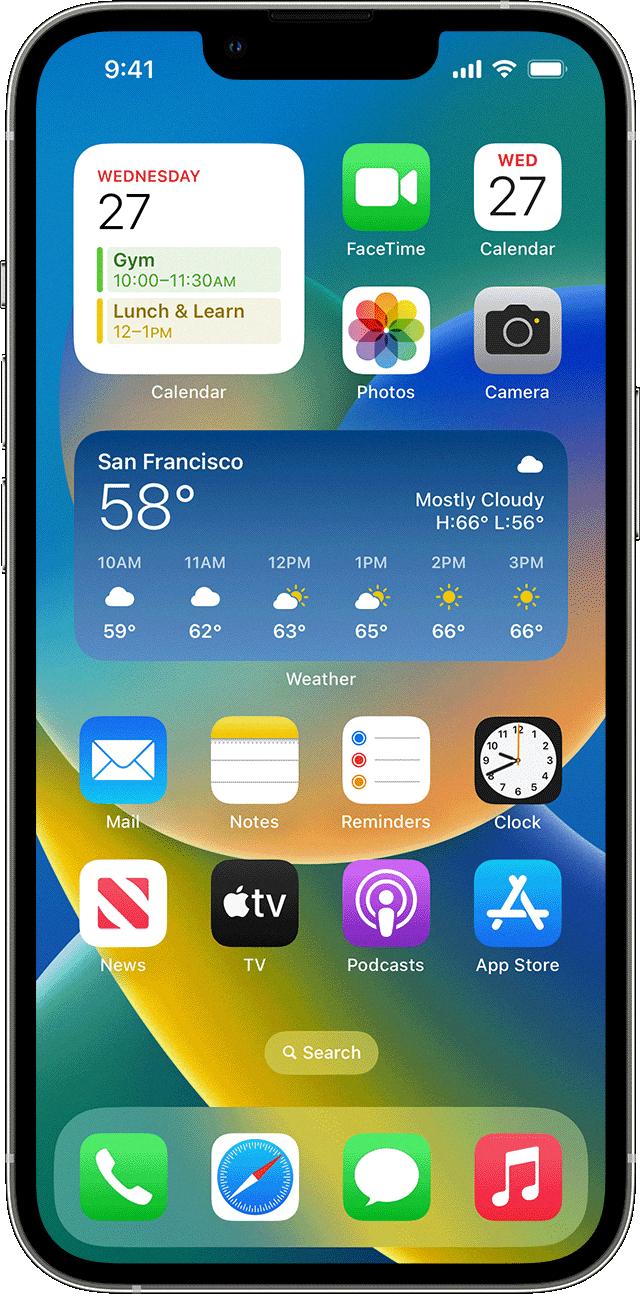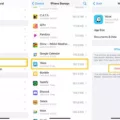If you’re an iPhone user, you know that cookies can be a nuisance. They have the potential to slow down your device and can even compromise your security. Fortunately, there are steps you can take to get rid of cookies on your iPhone and protect your device from future threats.
The first step is to open the Safari browser on your iPhone. Once it’s open, navigate to the “Settings” tab in the bottom right corner of the screen. From there, select “Safari” and scroll down untl you see “Block Cookies.” By default, this should be set to “Always Allow from Websites I Visit.” However, you can choose from other options such as “Allow from Current Website Only,” “Always Block Third-Party Cookies,” or “Always Block All Cookies.” Select whichever option best fits your needs and then exit out of the Safari settings page.
The next step is to delete any existing cookies that have been stored on your phone. To do this, go back into Settings > Safari > Advanced > Website Data > Remove All Website Data. This will delete all of the data associated with websites that you have visited, including any cookies that were stored on your device.
Finally, if you want extra protection against potential threats, consider using a third-party cookie blocker app like Ghostery or Privacy Badger for iOS devices. These apps allow users to block tracking cookies from various sources and keep teir information safe while browsing online.
By taking thee steps, you can get rid of existing cookies on your iPhone and prevent new ones from entering in the future!

Should I Delete Cookies on My iPhone?
It is up to your own personal preference wheher or not you should delete cookies on your iPhone. On one hand, deleting cookies can help resolve issues with the way your browser is behaving and save storage space. On the other hand, some websites may require cookies in order to function properly or remember user preferences. Additionally, privacy advocates recommend blocking cookies entirely since they can be used to track and store personal information about you. Ultimately, it is best to weigh both sides of the argument before deciding whether or not to delete cookies on your iPhone.

Source: support.apple.com
Stopping Cookies on an iPhone
To stop gettig cookies on your iPhone, go to Settings > Safari and make sure Block All Cookies is turned on. This will prevent websites from sending cookies to your device. Keep in mind that blocking cookies may cause some websites not to work properly, such as preventing you from logging into a website even when using the correct username and password.
Does Clearing Cookies Delete Passwords?
No, clearing cookies will not delete passwords. Your passwords are stored in the Profile Manager, which is separate from cookies. When you clear your cookies, websites will no longer remember you, and you will need to log in again with your saved password. However, the password iself will remain unchanged and stored in the Profile Manager.
The Impact of Deleting Cookies
Yes, deleting cookies can cause problems. Cookies are small pieces of data stored in your web browser that allow websites to remember certain information, such as your preferences or login information. If you delete cookies, this information will be erased and the website may not function as expected. For example, if you have an online shopping cart that relies on cookies, deleting them could cause the items in your cart to be lost. Additionally, some websites use cookies for security purposes, so deleting them could make those sites less secure or even unusable. Therefore, it’s important to weigh the risks befre deleting any cookies.
Do Cookies Use Storage Space on Phones?
Yes, cookies can take up space on your phone. Cookies are small pieces of data that websites store on your device as you browse. They contain information such as login credentials and preferences. Even though they’re tiny, these files can accumulate over time, taking up valuable storage space on your device. You can delete cookies to free up some space, but be aware that this will also log you out of any sites where you have saved credentials.
Clearing Cache on iPhone
Yes, it is beneficial to clear cache on an iPhone regularly. Cache data are temporarily stored files that help speed up the process of loading webpages and apps. Over time, these files can pile up and start taking up valuable storage space on your device. Clearing the cache can help free up this space and improve performance, so it’s a good idea to do so every once in a while.
Should I Delete Cookies on My Phone?
It is generally a good idea to delete cookies on your phone from time to time, especially if you have been using public or shared devices. Cookies store inforation about the websites you visit, such as settings and preferences. This can be useful if you want to maintain certain settings between visits, but it can also be a security risk if you’re using a public or shared device. Additionally, cookies can take up space on your device and slow down its performance.
If you want to clear your cookies, it’s easy to do so in your phone’s browser settings. You may have the option of deleting all cookies at once or selectively deleting particular cookies from individual sites. You may also be able to set up your browser so that it doesn’t save new cookies when you visit websites.
The Effects of Removing All Cookies
When you remove all cookies from your computer, it can help protect your privacy by erasing information stored in your browser, such as passwords and website preferences. This means that any websites you’ve previously visited won’t remember who you are or any of the settings you’ve chosen. Additionally, any information stored in cookies, such as shopping cart items, will be deleted. If you share your computer or device with other people, deleting all your cookies can help ensure that they won’t have access to your browsing history.
Changing Cookie Settings on an iPhone
In order to change cookie settings on your iPhone, you’ll need to open the Settings app. Once in there, scroll down until you find the Safari option and select it. Then, scroll down once more and select the Privacy & Security section. Here, you’ll be able to view and adjust your cookie settings. You can choose to enable or disable cookies by switching the Block All Cookies toggle on or off respectively. After making any adjustments, make sure to save them by tapping Done in the top right corner of the page.
Effects of Deleting All Cookies on an iPhone
If you delete all of the cookies on your iPhone, it will clear out any stored data that websites have placed on your device. This includes any login information you have saved with those websites, as well as other preferences and settings. In addition, deleting all of the cookies may cause some websites to seem slower or less responsive due to their inability to remember your preferences or settings. It is generally recommended that you only delete specific cookies rather than clearing them all out at once.
Frequency of Deleting Cookies
It is recommended to delete all cookies from your device at least once a month. This ensures that any information stored in the cookies won’t be left for an extended period of time, and will help protect your privacy. If you’re using a public computer, it’s important to delete all cookies and browsing history right afer your session. Doing so will help prevent any sensitive information from being accessed by other users.
Should Cookies Be Enabled or Disabled?
Cookies should generally be kept turned on in your browser. Cookies are small pieces of data that are stored on your computer when you visit a website. They can help make your web browsing experience more efficient by allowing websites to remember information abot you, such as logins or preferences. While there is some security risk associated with cookies, it is relatively minimal and turning them off will likely cause more inconvenience than benefit.
Are Cookies Necessary?
Yes, cookies are necessary for the modern internet. Cookies allow websites to remember information about you, such as your logins, shopping carts and preferences. They allow websites to offer a more personalized and convenient experience for visitors. Cookies can also help website developers better understand how users interact with their website, which helps them optimize the user experience. While cookies can be a vulnerability to your privacy, they are an essential part of the web browsing process and can help you have a better online experience.
The Best Cache Cleaner for iPhone
The best cache cleaner for iPhone is PhoneClean. This software was designed to make it easy to remove hidden, cached, cookie, and junk files from your device. It can detect the types of files that are clogging up your device and clean them with just one click. It can also free up storage space by deleting unnecessary files and optimizing memory usage. Unlike other cache cleaning tools, PhoneClean uses advanced security measures to ensure all data is securely removed from your device. It’s aailable for both Windows and macOS so you can start using it right away.
Does the iPhone Have Cache?
Yes, the iPhone does have a cache. The cache is a temporary area of the iPhone’s memory that stores hidden files used to improve performance and free up storage space. This data can be automatically created during day-to-day use and can be cleared if needed. Clearing the cache can help your device run faster or free up some much-needed storage space.
Clearing Cache on iPhone Apps
Yes, you can clear cache on iPhone apps. Here’s how:
1. Open the Settings app and navigate to General > iPhone Storage.
2. Scroll down and select the app whose cache you want to clear.
3. Tap the “Offload App” option and confirm your selection. This will delete the app’s cache without deleting the app itself, allowing you to start afresh with a clean slate.
4. Alternatively, if you wish to completely delete the app and its cache, tap “Delete App” in the same menu and then reinstall it from the App Store.
5. If you don’t see eithr of these options in an app’s settings menu, then unfortunately this means that there is no built-in way to clear its cache without deleting it entirely.
Speeding Up an iPhone
To speed up your iPhone, there are a few steps you can take. First, restart your device by pressing and holding the power button until the slider appears. Then, close any apps that are running in the background to free up RAM. Next, make sure your iOS is up-to-date; you can do this by goig to Settings > General > Software Update. Additionally, you can turn off Background App Refresh and Location Services by going to Settings > Privacy > Location Services and Settings > General > Background App Refresh respectively. You can also turn on Reduce Motion in Settings > General > Accessibility to reduce animations on your iPhone. To free up space on your device, delete unused apps and clear out old messages or media files from your Photos app. Finally, if all else fails, you can reset your iPhone back to factory settings by going to Settings > General > Reset and selecting “Erase All Content and Settings”. Following these steps should help get your iPhone back on track!
Clearing Cookies From Safari
Clearing cookies from Safari is a simple process. Firstly, launch the Safari browser and select Preferences from the top menu bar. Next, select Privacy and then click on Manage Website Data. You will then be presented with a list of websites that have stored cookies on your computer. Select the website(s) you wish to remove cookies for and click Remove. If you want to clear all cookies, click Remove All to clear your entire cookie list. Finally, click Done to complete the process.
Why Does Google Require Acceptance of Cookies on iPhones?
Google kees asking you to accept cookies on your iPhone because you are using private browsing. Private browsing prevents websites from storing information such as cookies, so when you visit a website that requires cookies to function properly, Google will prompt you to accept them. To avoid this prompt, you should turn off private browsing and allow websites to store information on your device.








